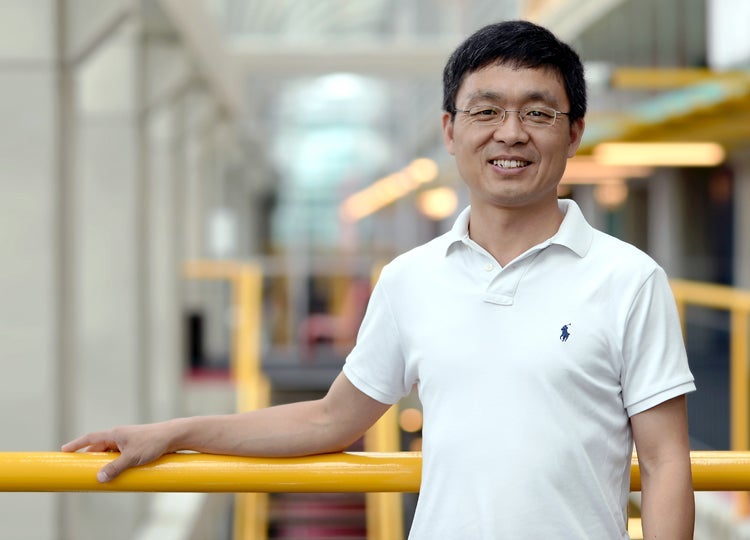Cheriton School of Computer Science Professor Bin Ma has received $462,998 in research support from Genome Canada for an ambitious three-year project titled “Software for peptide identification and quantification from large mass spectrometry data using data independent acquisition.” Additional funds, including a $154,327 grant from the Ontario Research Fund, bring the total amount to $925,987.

The announcement was made today by the Honourable Kirsty Duncan, Minister of Science and Sport, as part of a national announcement of $22.7 million. An additional $33.4 million is being invested by provincial governments, business and research partners.
Professor Ma and project co-lead, Professor Michael Moran from Toronto’s Hospital for Sick Children, will collaborate to develop software to improve the efficacy of precision medicine — treatments that are tailored to individual patients so the best therapeutic outcomes can be achieved with minimal side effects.
“Precision medicine starts by detecting and measuring biomarkers — protein molecules in a patient’s blood or tissues that can be used to detect abnormal processes caused by a disease or to see how the body is responding to a treatment,” Professor Ma explains.
Mass spectrometry is a commonly used analytical technique to quantify known chemical compounds, to identify unknown compounds within a sample, and to elucidate the structure and chemical properties of molecules.
“We’ve seen tremendous advances in mass spectrometry, which has made it possible to detect and measure an increasingly large number of protein biomarkers,” he said. “The problem is that we lack the software to sift through this mass spectrometry data comprehensively.”
To address this deficiency, Professor Ma’s research team will develop software to allow more sensitive and accurate protein identification and quantification using a method called DIA or data independent acquisition.
With data independent acquisition, protein biomarkers in patient samples are measured comprehensively by mass spectrometry, providing a digital snapshot that can be analyzed after the fact at different time points. This technique has many advantages over the current data-dependent approaches that measure a subset of biomarker signals, Professor Ma explains. “DIA unfortunately comes at a cost — this spectrometry method generates vast quantities of data that can be analyzed only if we have software that can process huge datasets.”
This is exactly what Professor Ma proposes to create. “We will develop software to discover and measure disease biomarkers using data independent acquisition mass spectrometry techniques.”
“Congratulations to Bin for receiving this generous and prestigious grant from Genome Canada,” said Mark Giesbrecht, Director of the David R. Cheriton School of Computer Science. “His proposed bioinformatics software will not only reduce healthcare costs, but it will also allow earlier disease detection and facilitate the selection of treatments optimized for each patient and his or her specific condition.”